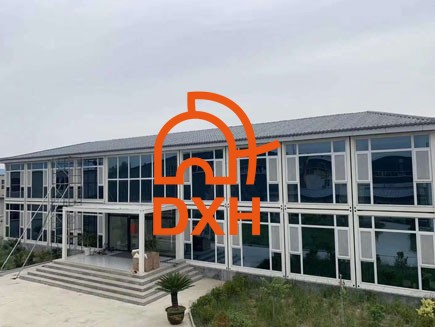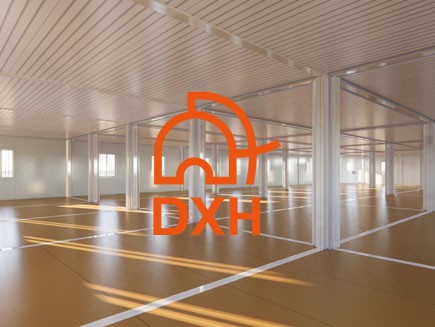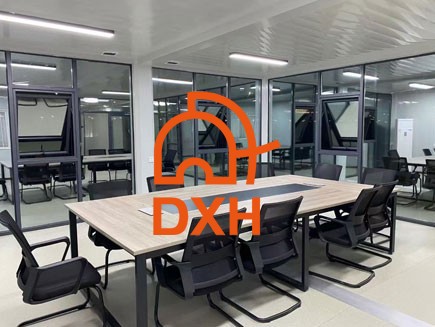Containerkantoren zijn populair als modern alternatief en kosteneffectiever dan traditionele kantoorruimtes. Maar wat bieden containerkantoren? Hoe verhouden ze zich tot conventionele kantoren? In deze blogpost onderzoeken we de belangrijkste verschillen tussen deze twee werkplekopties, met de nadruk op kosten, flexibiliteit, design en bruikbaarheid. Deze blog helpt je de beste optie voor jouw zakelijke behoeften te begrijpen.

Kosten zijn voor veel bedrijven een belangrijke overweging bij het selecteren van kantoorruimte. Modulaire containerkantoren zijn over het algemeen betaalbaarder omdat de gebruikte materialen goedkoper zijn dan die voor traditionele gebouwen. Het geprefabriceerde ontwerp maakt een snellere installatie en lagere arbeidskosten mogelijk. Traditionele kantoren vereisen doorgaans meer tijd en geld om te bouwen. De investering in materialen, arbeid en vergunningen moet vooraf worden overwogen. Betaalbare containerkantoren bieden een praktische oplossing voor kleine bedrijven en startups. U kunt een volledig functioneel kantoor creëren en tegelijkertijd de kosten beheersbaar houden.
Duurzaamheid wordt steeds belangrijker voor moderne bedrijven. Containerkantoren vallen op doordat ze bestaande containers hergebruiken, waardoor de behoefte aan nieuwe materialen afneemt en de afvalberg aanzienlijk afneemt. Traditionele kantoren gaan vaak gepaard met nieuwbouw, wat meer grondstoffen verbruikt en meer afval produceert. Wilt u uw ecologische voetafdruk verkleinen? Containerkantoren zijn een milieubewuste keuze. U kunt de duurzaamheid vergroten door zonnepanelen of andere groene voorzieningen toe te voegen.
De unieke flexibiliteit van containerkantoren onderscheidt ze. Naarmate uw bedrijf groeit, kunnen ze worden verplaatst naar een nieuwe locatie of worden gestapeld en aan elkaar gekoppeld om de ruimte uit te breiden. Traditionele kantoren bieden deze mate van aanpasbaarheid niet. Het uitbreiden of verplaatsen van een traditioneel kantoor kost tijd en geld. Voor snelgroeiende bedrijven bieden verplaatsbare containerkantoren ongeëvenaarde flexibiliteit.

De ontwerpvoorkeuren tussen de twee opties variëren. Prefab containerkantoren belichamen een moderne, industriële esthetiek en kunnen worden aangepast met verschillende ramen, deuren en afwerkingen om een unieke look te creëren, aantrekkelijk voor wie van eigentijds design houdt. Traditionele kantoren daarentegen bieden een klassieke uitstraling die past bij verschillende stijlen, of ze nu strak en modern zijn of tijdloos en elegant. Hoewel verplaatsbare containerkantoren uitgebreide maatwerkmogelijkheden bieden, zijn traditionele kantoren wellicht de betere keuze als u een specifieke architectuurstijl zoekt.
Praktische aspecten zijn cruciaal in elk kantoor. Containerkantoren, gemaakt van cortenstaal en hoogwaardige sandwichpanelen, bieden goede isolatie voor een comfortabele temperatuur. In extreme klimaten kan het echter nodig zijn de isolatie te verbeteren om het binnencomfort te behouden. De installatie van een verwarmings- of koelsysteem kan hetzelfde comfortniveau bereiken als een traditioneel kantoor. Traditionele kantoren, gebouwd met standaardmaterialen, presteren doorgaans beter op het gebied van verwarming en koeling. Niettemin kunnen beide een comfortabele binnentemperatuur handhaven. Containerkantoren vereisen mogelijk een extra investering in isolatie en klimaatbeheersing.

Zowel container- als traditionele kantoren hebben hun voordelen. Containerkantoren zijn kosteneffectief, milieuvriendelijk en aanpasbaar – ideaal voor bedrijven die een snelle, betaalbare, flexibele en aanpasbare ruimte willen. Traditionele kantoren zijn vaak duurder en minder flexibel, maar bieden een klassieke uitstraling en betere isolatie. Uw keuze hangt af van uw zakelijke behoeften, budget en prioriteiten. Als u op zoek bent naar een moderne, duurzame en betaalbare kantooroplossing, dan zijn containerkantoren wellicht de juiste keuze.
Neem contact op met DXH House Neem contact op met een professioneel ontwerpteam voor meer informatie of om een offerte aan te vragen.
Onze uren
Ma 21/11 - wo 23/11: 9.00 - 20.00 uur
Do 24/11: gesloten - Fijne Thanksgiving!
Vr 25/11: 8.00 - 22.00 uur
Za 26/11 - zo 27/11: 10.00 - 21.00 uur
(alle uren zijn Eastern Time)